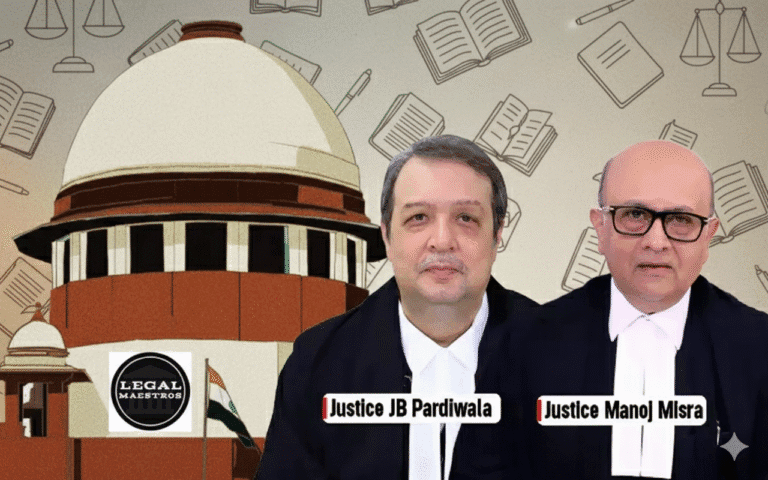
Fraudulent Acts Related to Property Seizure: A Detailed Look at Sections 244 and 245 of the Bharatiya Nyaya Sanhita, 2023
The Bharatiya Nyaya Sanhita, 2023, replacing the Indian Penal Code and effective from 1st July 2024, has provisions concerning various frauds pertaining to claims over property and decrees of courts. Sections 244 and 245 specifically provide for fraudulent claims to property and fraudulently inducing a belief in a state of affairs. These sections are put in place to make sure people doFraudulent Acts Related to Property Seizure: A Detailed Look at Sections 244 and 245 of the Bharatiya Nyaya Sanhita, 2023 not exploit legal procedures in order to block lawful seizures or avoid court directives. Let’s analyze each section in plain language to see what the scope and implications of such fraudulent acts are.
Section 244: Fraudulent Claim to Property to Prevent its Seizure
This section deals with persons who falsely claim, receive, or accept property despite being aware that they have no right to it. If a person resorts to fraud in order to avoid their property being forfeited as punishment or to satisfy a fine according to a court sentence or a decree by a civil court, then they will be dealt with under this section. In short, this law holds individuals who attempt to thwart lawful action against their property by misrepresenting themselves or tricking others into assuming they have a rightful claim on it.
For any queries or to publish an article or post or advertisement on our platform, do call at +91 6377460764 or email us at contact@legalmaestros.com.
Punishment for this section involves imprisonment for two years, which may be along with a fine or in lieu of a fine.
Suppose an individual named Rohan owns a house that is going to be seized by the court because of a fine. Realizing this, Rohan fraudulently gives away the house to his acquaintance Ankit under the pretext that Ankit is the true owner. Ankit, although realizing that he has no right to the house legally, accepts the house so that Rohan does not lose the house. Both Rohan and Ankit would be punishable under Section 244.
This section provides that no individual can fraudulently conceal or transfer property to avoid legal sanctions.
For any queries or to publish an article or post or advertisement on our platform, do call at +91 6377460764 or email us at contact@legalmaestros.com.
Section 245: Fraudulently Enduring a Decree for an Amount Not Due
Section 245 is meant to avoid individuals from permitting or inducing a court order (decree) to be issued against them for an amount or property that is not really due. That is, it punishes those who conspire with others to falsely acknowledge that they owe more money or property than they do. This is with the purpose of sharing the advantages of the proceeds or avoiding liability in some other action.
The offence under this section carries imprisonment of a maximum two years, or fine, or both.
For any queries or to publish an article or post or advertisement on our platform, do call at +91 6377460764 or email us at contact@legalmaestros.com.
Illustration:
Suppose person A sues person Z on a debt. Z is aware that A will succeed in the case and that the court will order Z’s property to be seized. But, prior to this, Z fraudulently permits another individual, B, to institute a case against him for a greater amount of money despite the fact that Z does not owe B anything. When the court directs Z’s property to be auctioned, B, who has no rightful claim, will also stand to gain from the sale. This facilitation of a fraudulent decree passing against Z is an offense under Section 245.
This provision guarantees that individuals do not abuse the court system by having false judgments issued against them for unwarranted benefits.
For any queries or to publish an article or post or advertisement on our platform, do call at +91 6377460764 or email us at contact@legalmaestros.com.
Key Insights from Sections 244 and 245
These two sections cover false acts relating to property and court decrees. They are designed to uphold the integrity of the legal process so that no person can cheat the court or the authorities regarding the seizure of property or court decrees. The provisions target those who falsely make claims, receive property by fraud, or consent to fraudulent court decrees against them.
In both instances, the principle is to maintain the sanctity of court proceedings and avoid fraudulent activities that would compromise justice. The sections guarantee that property confiscation, fines, and court decrees are not avoided by fraud or manipulation.
For any queries or to publish an article or post or advertisement on our platform, do call at +91 6377460764 or email us at contact@legalmaestros.com.
Conclusion
Sections 244 and 245 of the Bharatiya Nyaya Sanhita, 2023, deal with fraudulent activities involving property and court decrees. These provisions are intended to protect the legal process by punishing those who falsely claim property, receive fake judgments, or tamper with court orders. Through strict punishment, the law aims to deter the misuse of the legal process and ensure justice prevails. Either by falsely claiming property or by letting fake court orders be issued, the law guarantees that nothing of this sort will be tolerated.
The imprisonment for a period of two years, coupled with fines, acts as a deterrent against such fraudulent activities, making it evident that any attempt to cheat the court will be severely penalized.
For any queries or to publish an article or post or advertisement on our platform, do call at +91 6377460764 or email us at contact@legalmaestros.com.
Through elaborate explanations and practical examples, this article intends to enlighten readers about the practical usage of these laws and the need to uphold integrity in legal proceedings.







